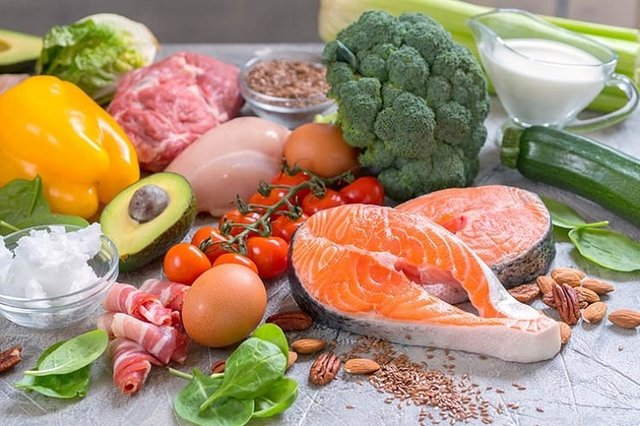10 Healthiest Foods

A healthy diet includes fruits, vegetables, nuts, beans, whole grains and low-fat dairy foods and less salt, sugary drinks, white flour and red meat. But with so many healthy foods out there, the problem is where to start or which one to choose. Here is a list of ten such foods. Which are very healthy and delicious to eat.
1.sweet potato
By eating delicious sweet potatoes regularly, you can stay away from various diseases. It is a nutritional superstar. Sweet potatoes are rich in beta-carotene and contain vitamin C. It is a source of potassium and fiber. Fry in a little olive oil until light brown. Enjoy with a sprinkling of spices or cinnamon powder and chili powder.
- mango
A cup of mango juice provides 100 percent of the daily value of vitamin C, a third of vitamin A, a good dose of blood pressure-lowering potassium, and 3 grams of fiber. Besides this, there are other benefits. You can eat it regularly during the mango season from March to June. - Unsweetened yogurt.
Yogurt is not only a delicious food but also healthy. Regular inclusion of dairy products in your diet will provide you with several health benefits. Yogurt is rich in calcium and vitamin D. Both elements are essential for bones. Yogurt contains numerous beneficial bacteria. These bacteria do not harm the body but help in digestion. Apart from this, curd bacteria also work to increase the immunity of the body. The potassium in yogurt helps lower blood pressure. Yogurt ingredients smooth the skin. The lactic acid in yogurt cleanses the skin and removes dead cells. Yogurt is rich in vitamins among other ingredients. Especially significant amounts of vitamin B5, zinc, potassium, phosphorus, iodine and riboflavin.
4.Broccoli
It is a vegetable that is very low in calories but broccoli is full of vitamins, minerals and fiber. Having broccoli in your daily diet can be good for your health. Its pods and flowers are usually boiled and eaten in various ways. Many people also eat raw.
Broccoli is rich in calcium and vitamin K which helps in preventing bone loss. Fiber plays a beneficial role in our digestion. Eliminates constipation. Broccoli is rich in vitamin A which prevents night blindness and improves eyesight. - Kritik salmon fish
Natural (unfarmed) fish like salmon, rich in omega-3 fats, help reduce the risk of heart attack and stroke. This fatty acid is very important to keep the body 100 percent active. It is also effective in preventing many diseases. This fish is useful in reducing heart disease, dementia, mental fatigue. It contains many vitamins, minerals and proteins. Salmon is very easy to make and doesn't require a lot of ingredients.Lightly fried with lemon juice, salt and pepper powder gives a lot of flavor But one can do as one wants. - Oatmeal
Oatmeal is a familiar name in Western countries as a breakfast. Oatmeal is also becoming popular in our country due to its contribution to health protection. Oatmeal contains a lot of fiber, which helps reduce the amount of harmful cholesterol in the body. It also increases the amount of beneficial cholesterol. As a result, it is very useful in controlling high blood pressure and heart disease. Helps to relieve constipation. Oatmeal keeps blood sugar levels under control. Eating oatmeal 5-6 times a week controls type-2 diabetes by 39%.
Add enough oatmeal to boiling hot water and stir for 5-10 minutes. Take it down when it becomes thick. You can add little salt to it for taste. If you want, you can add various spices to make Oat Khichuri. Or add non-dairy milk and fresh fruit to oatmeal. - chickpeas
Chickpeas are a high protein food. Every 100 grams of chickpeas contains about 18 grams of fat, 65 grams of carbohydrates, 5 grams of fat, 200 milligrams of calcium, 192 micrograms of vitamin A, and a large amount of vitamins B-1 and B-2. Soaking chickpea raw and peeling it and eating it with raw ginger fulfills the body's need for nutrients and antibiotics. Meat makes people strong and antibiotics help the body fight disease. Besides, chickpeas can be boiled or cooked as a curry. - watermelon
There is nothing better than a slice of watermelon to relieve the heat of summer. Watermelon is 92 percent water, which fulfills the water requirement of the body. A cup of watermelon juice provides about 45 calories. It has no fat and is very low in sugar. You can meet 21 percent of your vitamin C and 21 percent of your vitamin A needs by consuming a cup of watermelon juice every day. Not only that, this fruit contains beta-carotene. Besides, the antioxidant called lycopene in watermelon reduces the risk of high blood pressure and heart disease. Studies have shown that watermelon keeps cholesterol under control. Watermelon contains vitamin A, vitamin B6, vitamin C, magnesium and potassium. These ingredients help keep the heart healthy. - Butternut squash
Butternut squash soup is delicious. It is rich in vitamins A and C and fiber. Rich in many nutrients, squash plays an important role in maintaining skin and health. Squash also plays a big role in preventing diabetes or cancer. It also keeps the heart healthy and prevents insomnia. Squash can even protect against arthritis, ulcers and various infections. - Various greens
Any green leafy vegetable is very beneficial for the body, because the minerals contained in the green leafy vegetables are useful for the body. It can be said that minerals fulfill the needs of our body. Chot is the only vegetable that can be cooked quickly and is easily digested. These greens are packed with vitamins A, C and K, folate, potassium, magnesium, calcium, iron and fiber.
Health awareness should be everyone of us. Many of our diseases are only caused by our daily eating habits. So our diet must be healthy. So food that is harmful to health should be avoided.